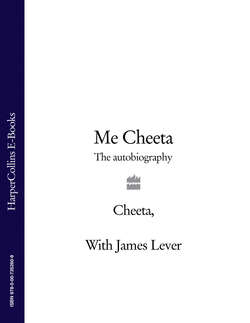Читать книгу Me Cheeta: The Autobiography - James Lever - Страница 12
6 Big Break!
ОглавлениеI remember that over the entrance to MGM’s Central Casting Office on Western Avenue, just outside the lot at Culver City, there used to be a sign that read, ‘Do NOT try to become an actor! For every ONE we employ we turn away a THOUSAND.’
I guess they knew that too many people becoming actors would eventually damage their business. For the movies to work, they needed large numbers of people who weren’t stars to do the actual watching. Hence the violent ‘Keep Out!’ sign, which was, however, completely useless. Like a ‘Do not throw objects into the animals’ cages’ notice, it was almost touchingly unrealistic about human nature. The queues beneath it were comprised of humans who considered odds of a thousand to one to be really rather tempting: the sign had quadrupled the queue.
Nowadays, of course, the problem has become critical. How can you stem the tidal wave of Americans who want to become famous actors? I don’t know what the answer is. Bigger, more violent signs? To continue enlarging the number of things humans can act in? The only feasible long-term solution to your pandemic is, I suppose, in each individual’s hands: don’t try to become a famous actor. And who’s going to go for that? The YouTubers? You can’t change your nature, can you? You can’t stop.
In the Golden Age, however, things were very different. Actors formed only a tiny minority of the population, so maybe some of the studios’ scare tactics did pay off. Certainly for an animal, there were powerful disincentives…
Our journey from the east took a week and a half of almost intolerably cramped intensive rehab. In the thirties and forties, most MGM employees travelling out to the coast from New York would take a sleeping compartment on board the 20th Century Limited, which departed Grand Central at six in the evening. Before the passengers woke the next morning, the sleeping carriages were tacked on to the Santa Fe Chief in Chicago, and two days later they’d be in Union Station, LA. Very civilized. But for us there was just a long period of darkness, semiconsciousness, tasteless fruit left to rot in our dungy straw, and a herky-jerky rhythm that didn’t soothe like the rocking of Forest Lawn.
And for me, perhaps for the other escapees too, there were bad dreams on the journey: I dreamed I was climbing one of the towers of Manhattan, and that the old man from the city-forest was climbing after me, trying to swat me with his stick so that I fell. As I dropped through the sky I looked into the shelters in the sides of the tower and saw humans displaying wrathfully at each other, or embracing each other, or giving smiles that were really grimaces of fear—a multitude of humans who seemed to contain just as much violence as we chimpanzees did.
Whenever the juddering motion and noise of the sleeping compartment ceased, we would all wake and cry out nervously to each other in the sudden stillness to check we still existed. I could distinguish Bonzo and Frederick and Gerard among the different calls, and I thought at those times that you could hear the residue of troubled dreams in most of our voices. I don’t know, maybe it was just me who was fretting about whether humans were really the answer after all. So the world spun under us and we travelled west towards the Dream Factories.
We were unloaded, reloaded, unloaded again. For the first time since Forest Lawn we smelled leopard, rhinoceros, lion and musty python (those things sure do reek), and heard turacos sending out relays of warning. And I thought I understood at last—our rehabilitation was over. It came to me like an epiphany. This was surely the reason we’d been deprived of the touch of each other, of the comfort of mutual grooming, or those kisses of reassurance that meant so much to us. We’d been deprived of it so that we would cherish each other now we were finally considered ready to return to the forest! So that we—and I guessed this included the rehabilitated leopards and snakes—would do it right this time. The humans had helped us see the error of our foolish ways, and now it was up to us to make the most of our second chance!
